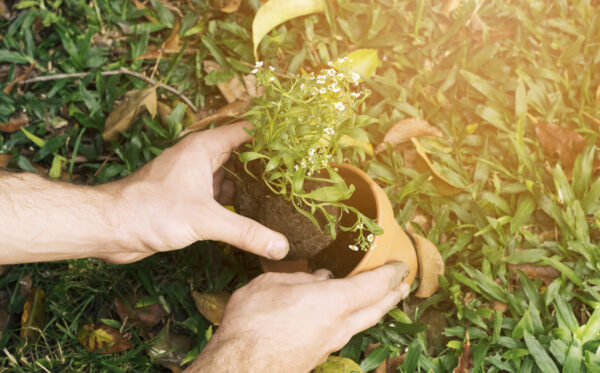The world of tea is as vast and varied as the cultures that cherish this ancient beverage. Yet, as our planet faces increasing environmental challenges, it’s essential that our enjoyment of tea doesn’t come at the cost of the Earth’s well-being. In this blog, we explore sustainable practices in tea gardening and consumption, offering tips for tea lovers who wish to tread more lightly on the planet.

1. The Roots of Sustainability: Organic Tea Gardening
Organic tea gardening is at the forefront of eco-friendly practices. By avoiding synthetic pesticides and fertilizers, organic tea farming not only ensures the health of the soil and the safety of the workers but also protects the ecosystems surrounding tea plantations. This method respects the natural balance, allowing beneficial insects and local flora to thrive, thus preserving biodiversity.
Key Benefits:
- Healthier Soil: Organic practices enrich the soil, maintaining its fertility without chemical interference.
- Safer for Workers: Reduces exposure to harmful chemicals.
- Biodiversity Preservation: Supports a balanced ecosystem.
2. Composting Used Tea Leaves: Turning Waste into Resource
One of the simplest yet most effective ways to engage in eco-friendly tea consumption is by composting used tea leaves. Tea leaves are a great addition to compost bins as they add nitrogen, an essential component for composting. This practice not only reduces waste but also provides nutrient-rich compost that can be used to nourish your garden.
How to Compost Tea Leaves:
- Ensure they’re free of synthetic additives: If you use non-organic tea, check for added flavors or elements that might not be compost-friendly.
- Mix with other compost materials: Balance the tea leaves with other green (nitrogen-rich) and brown (carbon-rich) materials.
- Monitor the compost’s progress: Regularly turn and check your compost for proper decomposition.
3. Reusable Tea Accessories: A Step Towards Zero Waste
Reducing waste in tea consumption also involves rethinking the accessories we use. Opting for reusable tea infusers, strainers, and even packaging can significantly cut down on waste. For instance, loose-leaf teas with reusable infusers not only reduce packaging waste but often provide a better quality brew than bagged teas.
Eco-Friendly Accessories:
- Stainless Steel Infusers: Durable and easy to clean.
- Glass or Ceramic Teapots: Long-lasting and often more aesthetically pleasing.
- Cloth Tea Bags: Washable and reusable, perfect for those who prefer the convenience of tea bags.

4. Supporting Sustainable Tea Brands
When purchasing tea, choosing brands committed to sustainable practices makes a big difference. Look for certifications like Fair Trade and Rainforest Alliance, which ensure that the tea is produced in an environmentally friendly and socially responsible manner. By supporting these brands, you’re contributing to a market that values sustainability.
5. Educate and Spread Awareness
Finally, educating oneself and others about the impact of these practices plays a crucial role in the broader adoption of sustainable habits. Share your knowledge about eco-friendly tea practices with friends and family, or start a conversation at your local tea shop. The more we spread awareness, the bigger the impact we can make.

